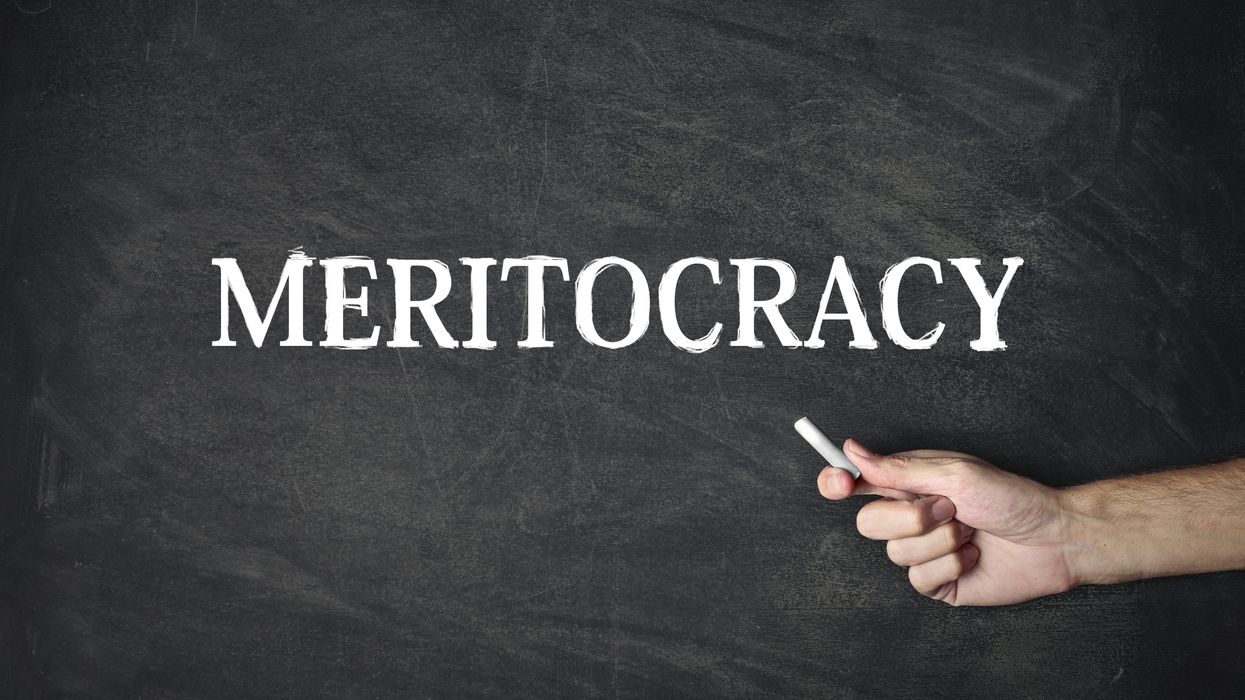Degefe is a research associate in Duke University's Samuel DuBois Cook Center on Social Equity. Ince is an assistant sociology professor at the University of Washington.
Rep. Burgess Owens (R-Utah) recently launched the Merit Caucus to prevent diversity, equity, and inclusion from dominating education. Owens, chairman of the Education and Workplace subcommittee on Higher Education and Workforce Development, argued that the left is waging a "war on meritocracy" and is threatening America’s excellence, all in the name of equity.
Such sentiment is clearly becoming more prevalent, as evidenced by the Supreme Court’s decision to effectively end race-conscious admission programs at colleges and universities and by Texas, Florida, Alabama and Utah banning the use of state dollars for DEI programs in public universities, effectively closing these offices.
Unfortunately, the essential principle of finding the balance between merit and offering a fair chance to those in our society who have often been denied equal opportunity has become a political minefield totally devoid of critical thinking and analysis.
Clearly, the idea of “merit” has changed in recent decades as our institutions have become more diverse. Diversity of student populations is becoming the rule rather than the exception. Traditionally, higher education and its respective fields of study were reserved for members of the elite and now that more women, people of color and first-generation students are engaged in formerly homogeneous professions, schools and workplaces, many feel threatened. One manifestation of these negative reactions is the downgrading of once prestigious fields as less rigorous when women and other members of historically excluded groups start joining them.
While advances have been made, more can be done. A recent study on the genetic propensity for education and social class found that, while 62 percent of affluent teenagers with a low aptitude for education attended university, only 47 percent of poorer teenagers with a high aptitude attended university. Ivy League universities are significantly more diverse than 30 years ago yet 58 percent to 72 percent of Ivy League students come from families that are in the top 20 percent of earners, with only 2 percent 6 percent from “poor” families.
To be clear, we are not arguing against the concept of meritocracy. Our successes in life should be directly tied to our ability and effort. Those with the most prestigious positions should be the hardest-working and most capable. But a world in which merit matters can also be fair and just. That is the challenge we face.
It is incumbent upon us to not allow ourselves to be triggered by discussions of diversity, inclusion, equity and opportunity. All too often any discussions related to merit or lack thereof are filled with soundbites, harsh rhetoric and a general lack of critical thinking.
However, it is important to recognize that systems of inequality disadvantage the majority of Americans. With some deep reflection and with an openness to the disadvantages and prejudices many in our nation face, we can as a people co-create a sense of social cohesion through the development of dialogue that leads to understanding. A dialogue allows us to search for the best way to offer opportunities to all underrepresented groups in our county.
We need to get away from terms like “meritocracy.” It is a piece of propaganda designed to get people to support systems of privilege that they do not benefit from. This type of thinking does little to build upon the motto of our nation, “E pluribus unum.” Out of many we are one.
Rather than think of DEI in terms of eliminating merit, DEI instead should aim to even the playing field for everyone. Initiatives for inclusion have helped steadily raise the number of women in corporate leadership positions: Companies with DEI programs having 10 percent more women leaders than those without. Since the Obama administration, the number of Black and Hispanic college students has increased by 4 percentage points. And, more recently, there has been a push to include social class in companies’ DEI campaigns, aiming to better help everyone in the working class.
In short, diversity aims to invite everyone to the table, allowing everyone who was previously excluded a slice of the pie. It is in our best interest as a nation to see diversity as an operating system, not a quota.



















Trump & Hegseth gave Mark Kelly a huge 2028 gift